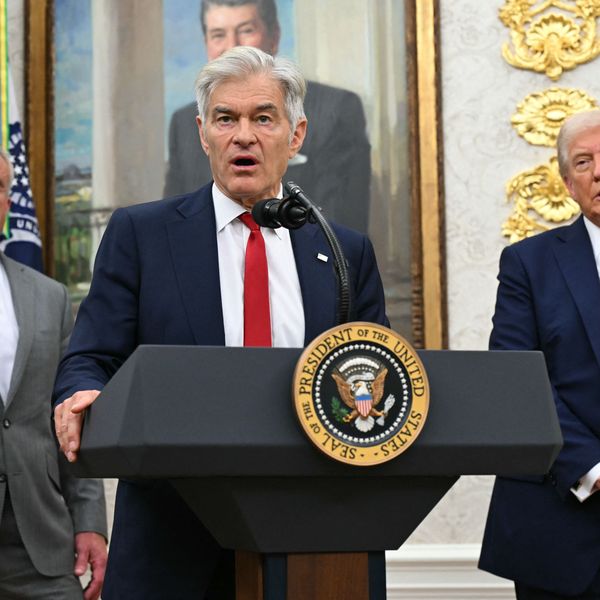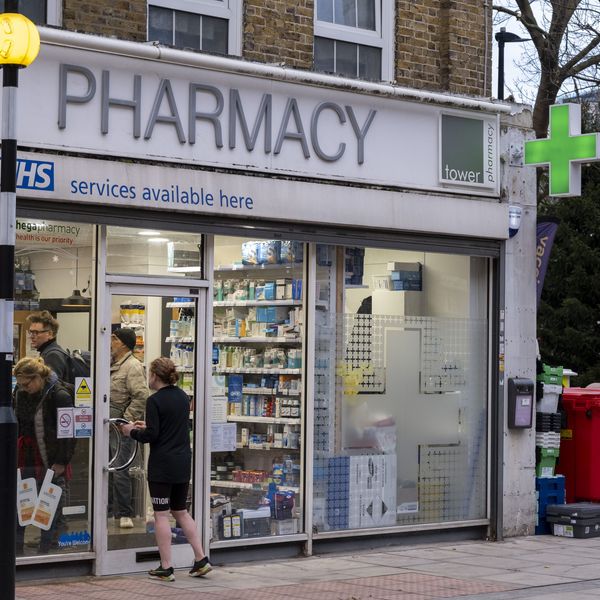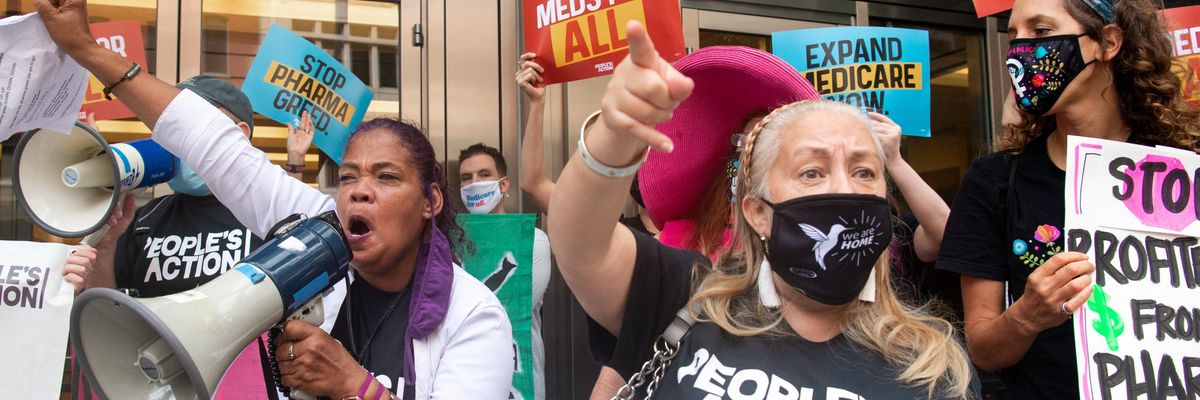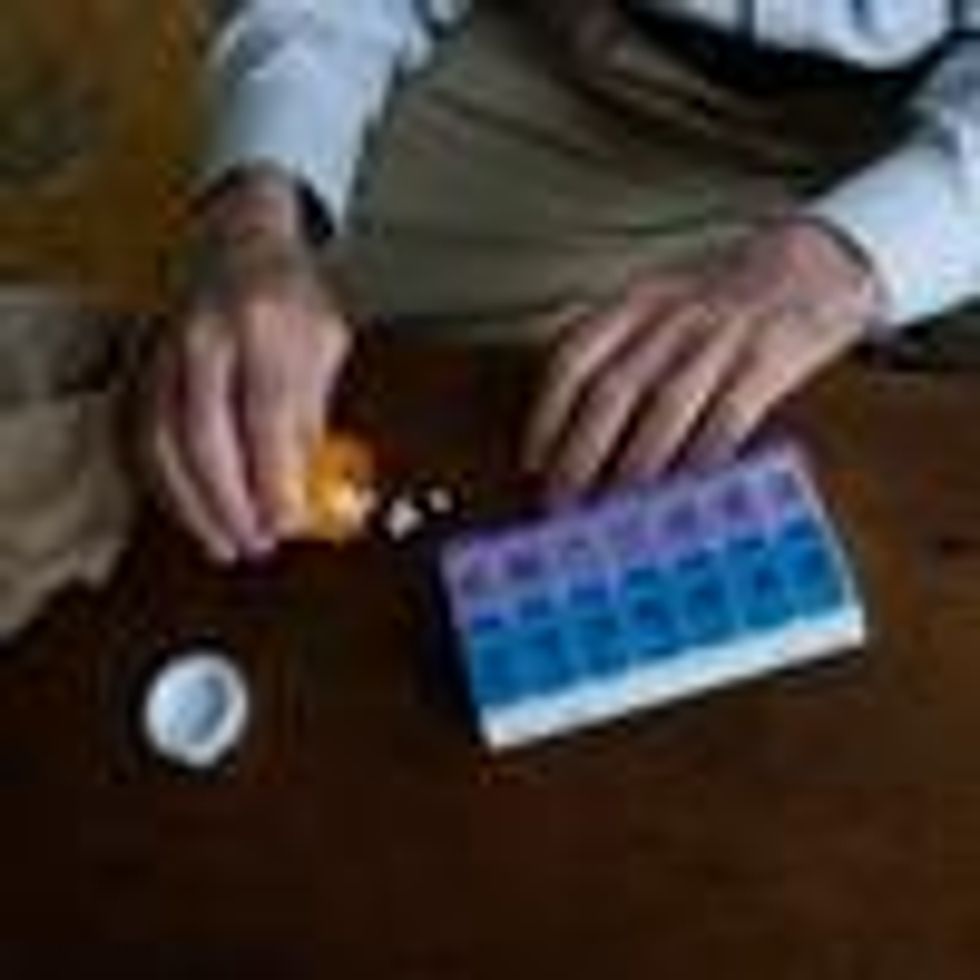New research published Wednesday shows that since the coronavirus pandemic began more than two years ago, the five largest pharmaceutical companies in the United States have spent nearly $150 million lobbying against Democratic proposals to lower the country's increasingly outlandish drug prices.
" Big Pharma, like many other industries, knows they cannot justify raising prices so high at the same time they boast of excessive profits."
The analysis by the corporate and government watchdog group Accountable.US estimates that Johnson & Johnson, Eli Lilly, Pfizer, AbbVie, and Merck poured a combined $147.3 million into lobbying Congress since 2020.
"Meanwhile, major pharmaceutical CEOs raked in over $292.6 million" as "their companies saw skyrocketing profits," the report notes.
"Big Pharma, like many other industries, knows they cannot justify raising prices so high at the same time they boast of excessive profits, generous CEO bonuses, and huge shareholder payouts," said Accountable.US spokesperson Liz Zelnick. "That is why the big drug companies spend so massively lobbying to keep the market rigged in their favor and seniors at their mercy, including many literally choosing between food and medicine."
"It is time the conservatives in Congress who complain constantly about inflation finally do something constructive about it--and there's no better place to start than allowing Medicare to finally negotiate lower drug prices," Zelnick added. "What really matters most to these lawmakers: bringing down costs for seniors, or looking out for the bottom line of their big drug company donors?"
The fresh research on Big Pharma's influence-peddling comes as Senate Democrats are working toward a compromise proposal that would allow Medicare to negotiate the prices of a small subset of prescription medicines directly with drug firms that have been pushing up costs with abandon for years.
In 2021, according to one recent study, nearly 18 million U.S. adults couldn't afford at least one medication prescribed by their doctor.
Related Content
'Unbelievable': Half of New Drugs Launched in 2020-2021 Cost $150,000 or More Per Year
Jake Johnson
In its current form, the new Democratic plan would cap Medicare Part D enrollees' out-of-pocket prescription drug costs at $2,000 annually, penalize pharmaceutical companies that raise prices at a faster rate than inflation, and require Medicare to negotiate the prices of a limited number of drugs.
The Congressional Budget Office projects the measure would save the U.S.--which spends far more on prescription drugs than other wealthy nations--$290 billion over 10 years.
Unsurprisingly, Pharmaceutical Research and Manufacturers of America (PhRMA)--the drug industry's trade group--has denounced the proposal, decrying its "sweeping government price-setting policies."
Last year, Big Pharma spent heavily to weaken an earlier Democratic drug pricing plan that was ultimately scrapped thanks in large part to Sen. Joe Manchin (D-W.Va.).
While it's despised by the pharmaceutical industry--whose lobbyists on Capitol Hill outnumber members of Congress--the idea of allowing Medicare to directly negotiate drug prices is broadly popular with the U.S. public, garnering more than 80% support across party lines in some polling.
"Giving Medicare the power to negotiate lower drug prices is popular, necessary, and will save lives," the progressive advocacy group Social Security Works said Wednesday. "Now it's time for Democrats in Congress to deliver for us."




